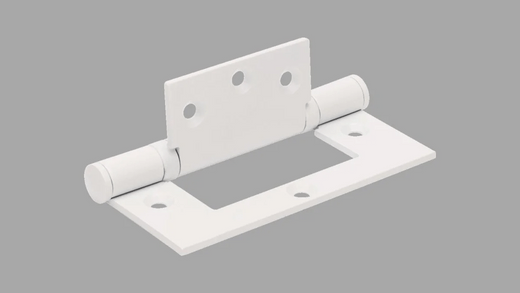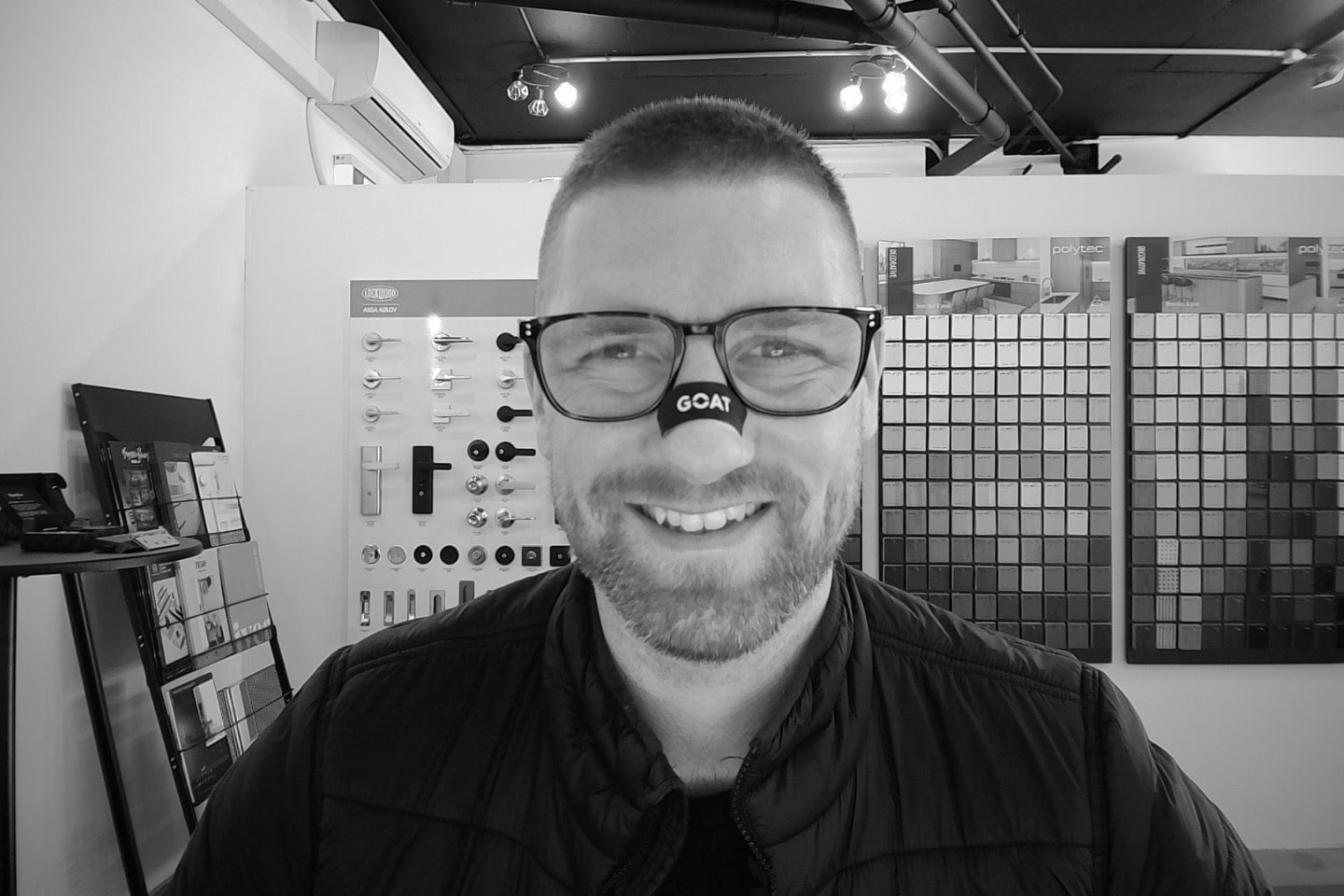Hinges are a crucial element of door hardware, ensuring functionality and durability. Selecting the right hinge for your door enhances its performance and extends its lifespan.
In this guide, we explore the different types of hinges, their features, and ideal applications to help you make an informed choice
Ball Bearing Hinges

Ball bearing hinges are designed for strength and durability, making them ideal for heavier doors. These hinges feature ball bearings between the knuckles to reduce friction, ensuring smooth and long-lasting operation.
Commonly used in commercial settings or on entrance doors, they are well-suited for heavy wooden or metal doors that experience frequent use. For robust and reliable performance, ball bearing hinges are an excellent choice.
Fixed Pin Hinges

Fixed pin hinges are the standard option for most interior and exterior doors. With a non-removable pin, they provide security and tamper resistance.
These hinges are versatile, cost-effective, and widely used in both residential and commercial applications. Their simplicity and reliability make them a popular choice in door hardware.
Loose Pin Hinges

Loose pin hinges, though less common, are highly practical in specific scenarios. They allow the pin to be removed, making it easy to take the door off without unscrewing the hinges.
This feature is particularly useful for doors that require regular removal or maintenance. Loose pin hinges are an ideal solution for interior doors where flexibility and convenience are priorities.
Fast Fix Hinges

Fast fix hinges are a time-saving solution for door installation. Designed for face mounting onto the door and frame, they eliminate the need for routing.
These hinges are perfect for projects where efficiency is key, such as refurbishments or quick installations. While they may not offer the seamless appearance of routed hinges, fast fix hinges are practical and user-friendly.
Aluminium Heavy-Duty Hinges

Aluminium heavy-duty hinges are built to withstand the demands of large and heavy doors, often found in commercial and industrial settings. Their strength and corrosion resistance make them suitable for metal frames, exterior doors, and environments exposed to harsh conditions.
These hinges provide stability and durability under heavy loads, making them a reliable choice for challenging applications.
Pivot Hinges
Pivot hinges work differently from traditional hinges, using a top and bottom pivot point to support the door. This design allows for smooth, balanced movement and is often used in modern or minimalist door designs. Pivot hinges are commonly installed on oversized or heavy doors where traditional hinges may not provide adequate support. They are also chosen for their clean and streamlined appearance.
Choosing the Right Hinge for Your Door
When selecting a hinge, consider the following factors:
-
Door Material and Weight: Heavy wooden or metal doors may require ball bearing or aluminium heavy-duty hinges, while lighter doors can use fixed pin or loose pin hinges.
-
Usage Frequency: High-traffic areas benefit from durable options like ball bearing or pivot hinges.
-
Installation Requirements: For straightforward installation, fast fix hinges are ideal.
-
Aesthetic Preferences: Pivot hinges offer a sleek and modern look, while fixed pin hinges are discreet and traditional.
Conclusion
Understanding the various hinge types is essential for selecting the right door hardware. Whether you prioritise strength, ease of installation, or aesthetic appeal, there is a hinge designed to suit your needs. By considering your door’s material, weight, and purpose, you can ensure optimal functionality and durability for years to come.



